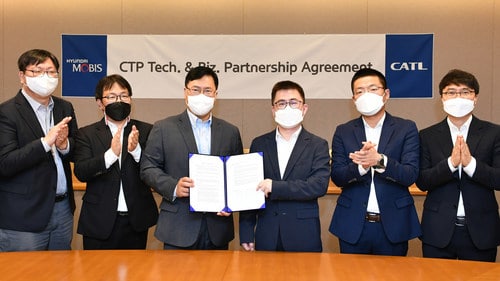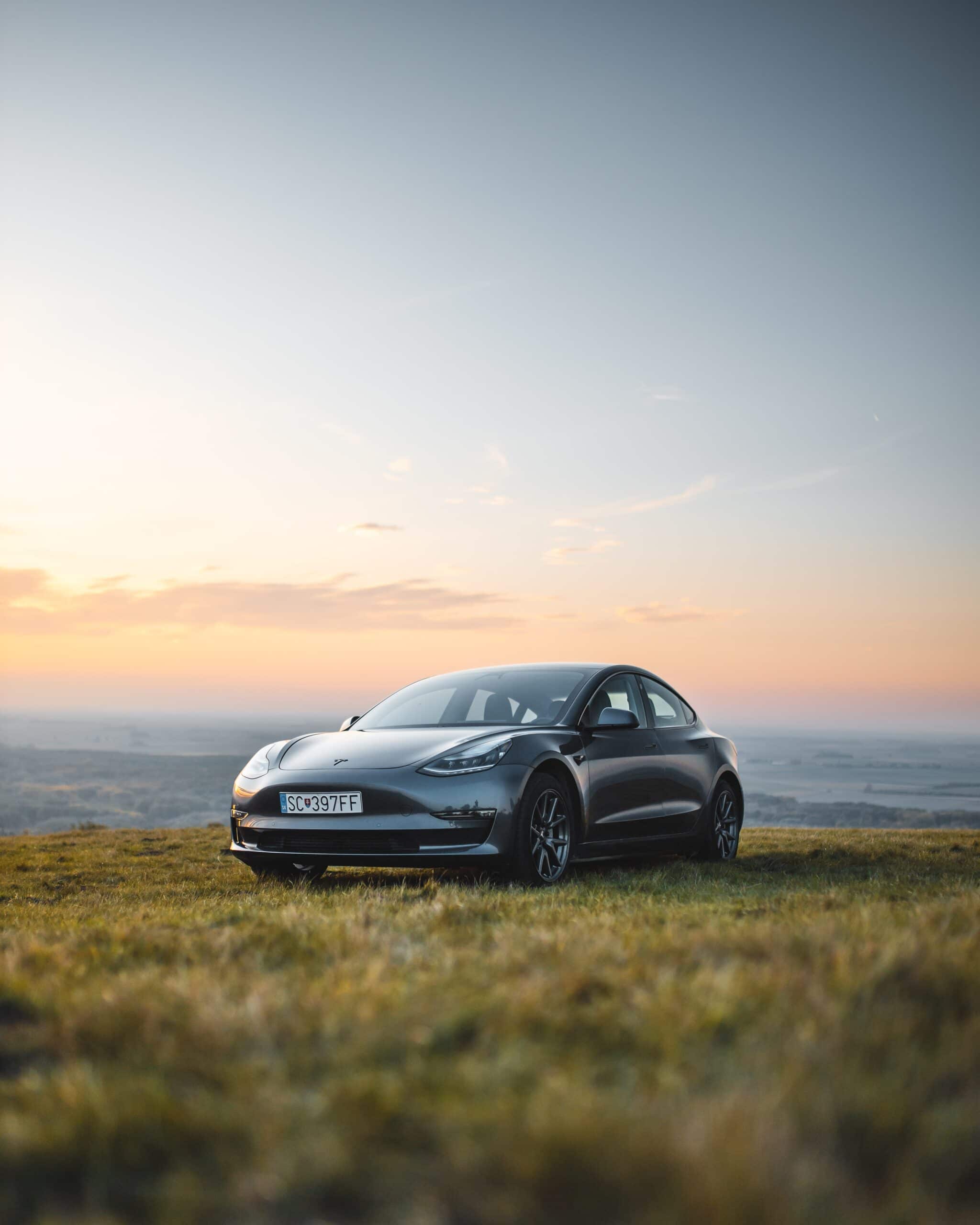Hyundai Mobis and China’s CATL announced on Wednesday a partnership and license agreement for CATL’s cell-to-pack system.
An integrated cell-to-pack battery uses cells without the modules normally used in a battery pack design. In a joint press release, the two companies said that the technology will be integrated into electric cars and other products for global markets.

CATL and Hyundai MOBIS signed CTP technology licensing and partnership agreement
Neither a timeline nor specific products were mentioned in the announcement.
Hyundai Mobis leads the way in supplying the mobility-related tech to automakers – including battery packaging – so it is possible the parent company is considering cell-to-pack technology for future EVs from Hyundai, Kia, and Genesis.
It is unclear if Hyundai will change its pouch format for its Ioniq 5, Kia EV6, or Genesis GV60, as most of the cell-to-pack ideas target cylindrical or prismatic cells.
Hyundai has explored the idea of leasing battery packs to help lower electric car prices, and it’s reportedly working on a line of energy storage products to complement its line of electric cars-so. It is also possible that Hyundai will use the battery technology for trucks along with fuel-cell tech.
CATL has licensed its cell-to-pack technology to the Indiana startup ELMS, although with lithium iron phosphate (LFP) cells produced in China. The setup may facilitate battery swaps in the future. The former Hummer factory in Mishawaka, Indiana, houses ELMS’ assembly line for delivery vans.


